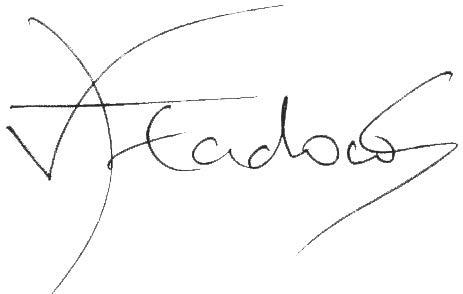 |
|
|
Fall 2017 A Word from the Director
Dear Astrobiology Enthusiasts, Astronomers in the University of Washington’s Astrobiology Program are continuing their exciting discoveries of nearby potentially habitable planets, and were key players in the discoveries of the spectacular TRAPPIST-1 system of seven exoplanets. In the next five years, the launch of the NASA James Webb Space Telescope in 2019 and advances in large telescopes on the ground will provide humanity with its first chance to look for life on these planets. Our Astrobiology Program students and faculty continue to be at the forefront of developing new ways to look for life beyond the Earth, and to train the next generation of interdisciplinary explorers. With the search for life on exoplanets imminent, the University of Washington’s Astrobiology Program and the NASA Astrobiology Institute’s Virtual Planetary Laboratory (VPL), which is hosted at UW, are poised to lead the way on data acquisition and analysis, and interpretation of the data on potentially habitable planets that these new telescopes will bring us. This role has resulted in more recognition for our researchers over the past year: some of it serious, with nominations to key community science and mission leadership roles, and others more fun, with the UW Astrobiology Program and the VPL being featured heavily in NASA’s latest astrobiology graphic novel. Our community continues to grow and excel, and we welcome three new graduate students this year: Zachary Cohen (Chemistry), Dominic Sivitilli (Psychology), and Guadalupe Tovar (Astronomy) who won an NSF Graduate Fellowship and is a Husky 100 Undergraduate. We also welcomed five new post docs: Kim Bott (Astronomy/VPL), Baptiste Journaux (ESS), Olivier Bollengier (ESS), Mackenzie Day (ESS) and Shintaro Kadoya (ESS). We also graduated four students, who go on to bright futures: Elena Amador (ESS & Astrobiology) is now a postdoc at Caltech, Rodrigo Luger (Astronomy & Astrobiology) takes up a coveted Fellowship at the Flatiron Institute in New York next year, Russell Deitrick (Astronomy & Astrobiology) leaves us for a postdoctoral position at the University of Bern, and Paul Kintner (ESS) earned a Master's degree with a certificate in Astrobiology. This year in news from our alumni Dr. Kyle Costa (2013, Microbiology/Astrobiology Certificate) also garnered a faculty position in Plant and Microbial Biology at the University of Minnesota, and alumnus Dr. Giada Arney (2016, Astronomy & Astrobiology) was promoted to a leadership role as the lead of the LUVOIR Science Support and Analysis Team, the group that leads the simulations of LUVOIR performance, at the NASA Goddard Space Flight Center. Dr. Jesse Colangelo-Lillis (2012, Oceanography/Astrobiology Certificate) was awarded a C-DEBI Postdoctoral Fellowship at CU-Boulder. Jaci Saunders (Oceanography & Astrobiology) won a NASA Astrobiology Institute Postdoctoral Fellowship at MIT, working with Dr. Tanya Bosak. We have several research highlights, awards and significant events to celebrate as our students and faculty contribute to scientific discovery in the US and abroad. See the newsletter sidebar for highlights of our many scientific publications this year, and “Where in the World are our Astrobiologists” for a summary of our trips across the planet in search of Astrobiology discoveries, many of which were supported by donor funds. In the area of awards and recognition, Astrobiology Professor Steve Warren (ESS) was elected a Fellow of the American Geophysical Union, and Prof. Eric Agol (Astronomy) won a prestigious Guggenheim Fellowship. Grad students Michael Diamond (Atmospheric Sciences & Astrobiology) and Andrew Lincowski (Astronomy & Astrobiology) each won a NASA Earth and Space Science Fellowship. Astrobiology Program Director Victoria Meadows is out and about waving the flag for UW Astrobiology as a new Visiting Professor at the University of Tokyo Astrobiology Center, and as the Chair of the Science Organizing Committee for the upcoming Astrobiology Science Conference in Seattle in 2019. She was also nominated to Chair the NASA Exoplanet Analysis Group (ExoPAG), and to participate in two National Academy of Sciences Panels on Astrobiology and Exoplanets in the coming year. We will continue to offer our Astrobiology Colloquium Series in Spring and Fall of 2018, with cutting edge astrobiology research presented by visiting and local experts. These presentations are pitched to be accessible to an interdisciplinary audience. Select talks in this series are webcast and recorded by the NASA Astrobiology Institute and can be viewed live on your web-browser. The recordings can also be accessed at any time (instructions on how to join in are provided in the Newsletter sidebar). Click here for recordings of the Fall 2017 colloquia, as well as recorded colloquia from previous years. Our Spring line-up is being coordinated by Dr. Kim Bott. A sneak peek shows talks by Dr. Rika Anderson (Carleton College, viruses and genomics), Dr. Evgenya Shkolnik (ASU, M dwarf stars as planetary hosts), Dr. Carrie Albertin (U Chicago, organismal biology ’ anatomy) , Dr. Sarah Stewart Johnson (Georgetown University, life detection on Mars), Dr. Tara Djokic (UNSW, paleoarchean terrestrial hot springs), and more! Finally, I’ll end this letter by asking readers to please consider making a donation to support the Astrobiology Program. Despite all our successes, our funding situation is somewhat precarious, as the vast majority of the costs of running this program are supported through University matching funds tied to external grant funding. Our current NASA VPL grant expires at the end of 2017, and we have no word yet on whether our recent proposal to continue this effort was successful. Donor funds help buffer these uncertainties, and expand opportunities for our students. In the past year your generous donations have been used to sponsor public talks, provide scholarships for student recruitment to attract the best and brightest, and send our grads to present at key scientific conferences, and participate in scientific field trips that advance their research. Any contribution, no matter how small, will be extremely welcome, and will help us to maintain our vigorous and excellent program as we search for life beyond our Earth, and work to better understand humanity’s place in the cosmos! Wishing you and yours a Happy Holiday Season!
|
|

